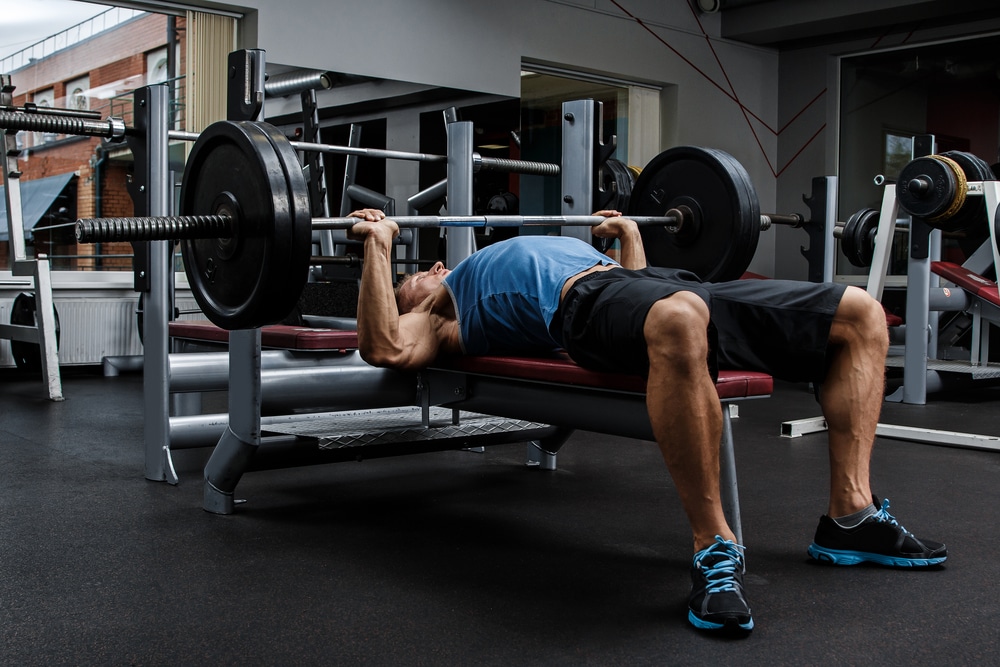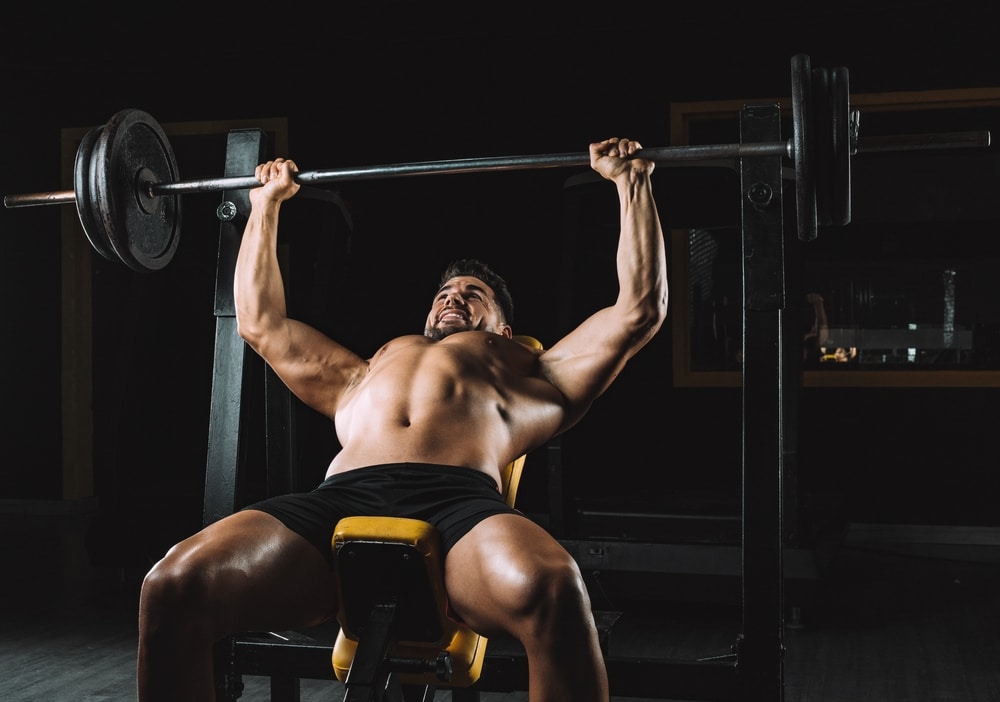When it comes to strength training, one of the most fundamental exercises is the bench press, and understanding the bench press bar weight is essential for accurate training. The weight of the bar you’re using can affect your performance and progress. However, many people are unsure about how much the bar weighs. Especially since there are several different types of bars available, each with its own specifications. This guide will explain the various bars used for the bench press and other exercises, focusing on their barbell weight and the differences between them. 
Standard Weight and Types of Bars
There are different types of bars used for various exercises, including the bench press, bicep curls, and deadlifts. While the most common bar used for the bench press is the Olympic barbell. There are also standard bars, cambered bars, trap bars, and Swiss bars. Each has a different barbell weight and serves different functions in strength training.
Standard Barbell
The standard barbell is commonly used in home gyms and smaller commercial gyms. It typically weighs less than the Olympic bar, often around 15 to 20 pounds, but can vary based on the manufacturer. This bar has a thinner shaft and smaller diameter sleeves. Which means it can’t handle as much weight as the Olympic barbell.
Olympic Bar
The Olympic bar is the most commonly used bar in powerlifting and bodybuilding gyms. The Olympic barbell typically weighs 45 pounds, and it is designed to handle more weight than a standard bar. This bar has a larger diameter and longer sleeves to accommodate Olympic-sized weight plates. Many people asking, “How much does a bar weigh for bench press?” are referring to this bar, which weighs around 45 pounds.
Power Bar
The power bar is a variation of the Olympic bar but with more aggressive knurling (the textured part of the bar for grip) and stiffer steel. This makes it ideal for heavy lifts like squats and deadlifts, as well as bench presses. Like the Olympic bar, the power bar typically weighs 45 pounds.
Bench Press Bar Weight
When people ask, “What is the weight of the bench press bar?” they’re usually referring to the Olympic bar, which, as mentioned, weighs around 45 pounds. For those lifting heavy in a commercial gym, this is the standard. The bench press bar weight matters because it contributes to the total weight you’re lifting. For example, if you load 200 pounds of weight plates onto the Olympic bar, you’re actually pressing 245 pounds, factoring in the weight of the bar.
However, in some gyms or home setups, you might encounter a standard bar for the bench press, which is lighter. The standard bar weight for bench press is usually between 15 and 25 pounds. Although it may not seem like much, the difference can be significant when tracking progress over time.

Specialty Bars
In addition to the Olympic bar and standard bar. There are other specialty bars that can be used for the bench press and other lifts, each with unique features and barbell weights.
Swiss Bar: The Swiss bar allows for a neutral grip, which means your palms face each other. This reduces strain on the shoulders and elbows, making it ideal for lifters dealing with injuries or discomfort. The Swiss bar typically weighs between 35 and 50 pounds, depending on the manufacturer.
Cambered Bar: The cambered bar has a bend in the middle. Which allows for a greater range of motion during pressing exercises. It can also shift the emphasis to different muscles. This bar is often heavier than a standard bar, with most models weighing between 45 and 60 pounds.
Trap Bar: The trap bar is commonly used for deadlifts, but it can also be utilized for pressing exercises. The trap bar typically weighs around 50 to 60 pounds and is designed with a hexagonal shape. Allowing you to step inside it and lift with a more upright posture.
Importance of Knowing the Weight of the Bar
Knowing the bench press bar weight is critical for tracking progress accurately. If you’re working toward a specific goal, such as pressing a certain number of pounds, understanding the barbell weight ensures you’re measuring your lifts properly. Whether you’re using a standard bar, Olympic bar, or specialty bars like the Swiss bar or cambered bar, knowing the weight of the bar you’re using is the first step toward achieving your strength goals.
Conclusion
Understanding the different types of bars and their respective barbell weights is crucial for any lifter. Whether you’re using an Olympic bar, a standard bar, or a specialty bar like the Swiss bar or cambered bar, the weight of the bar plays a key role in your training. So the next time you head to the gym. You’ll be better prepared to answer the question, “How much does the bench press bar weigh?”

